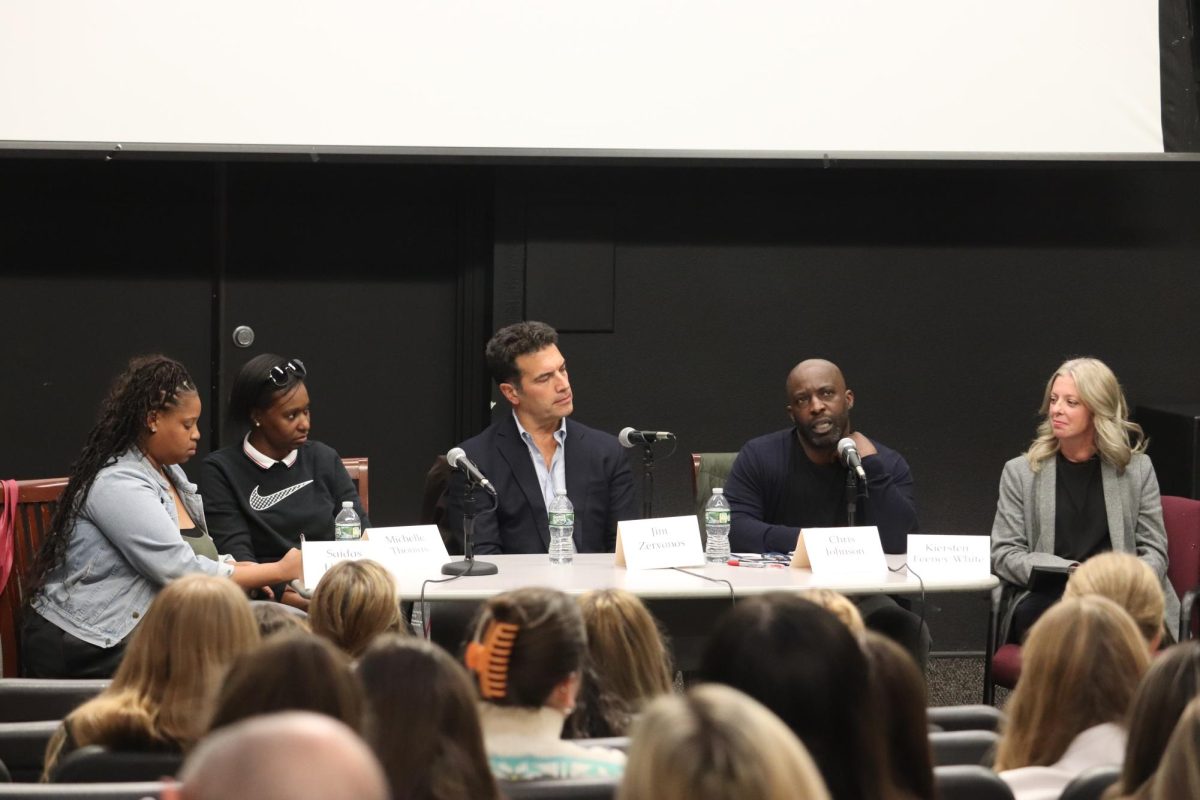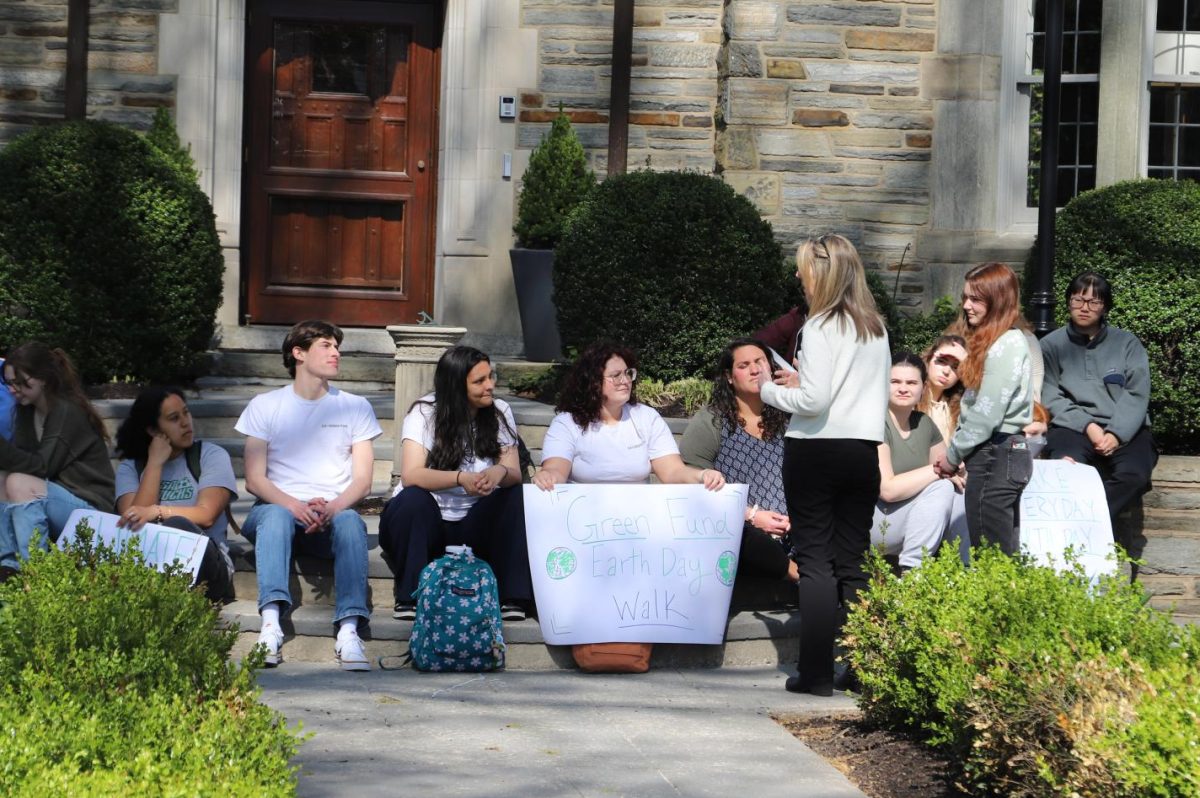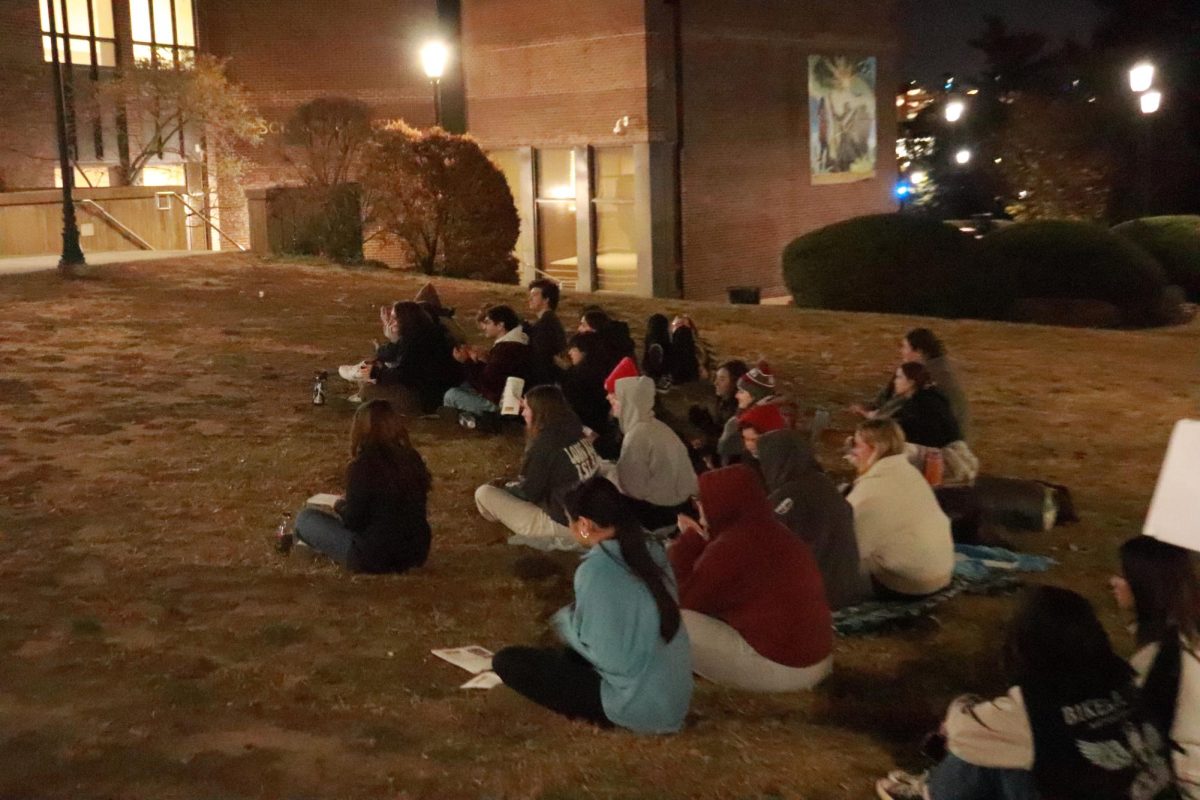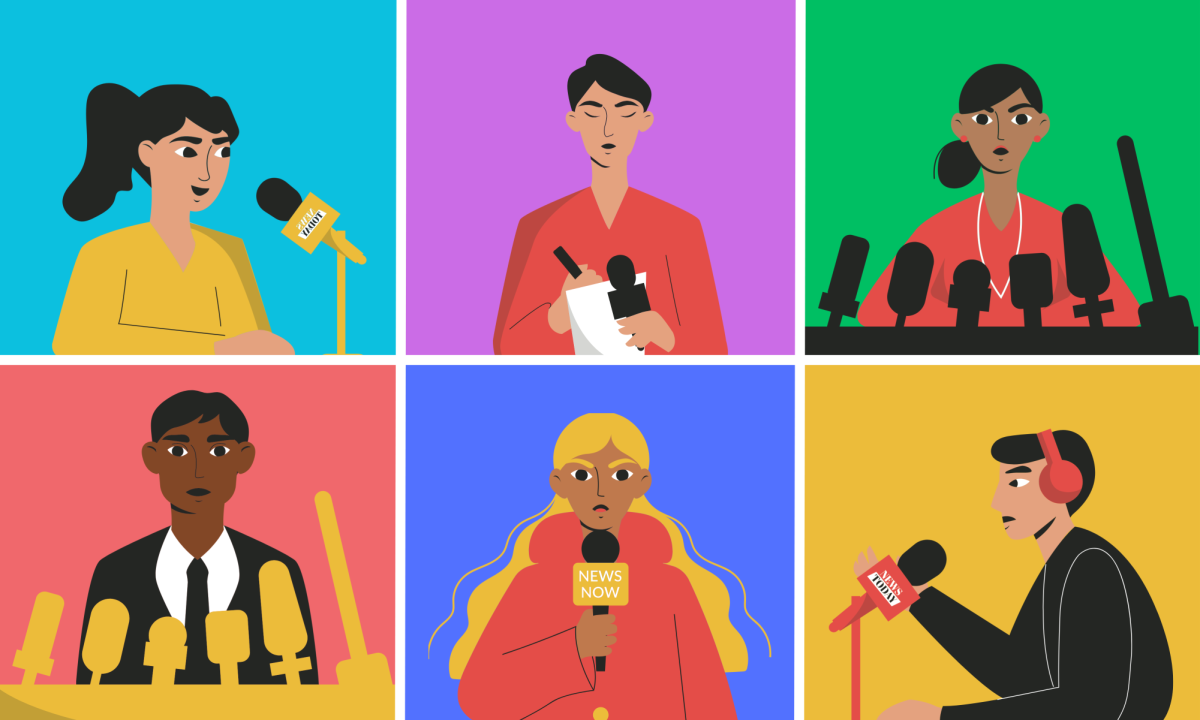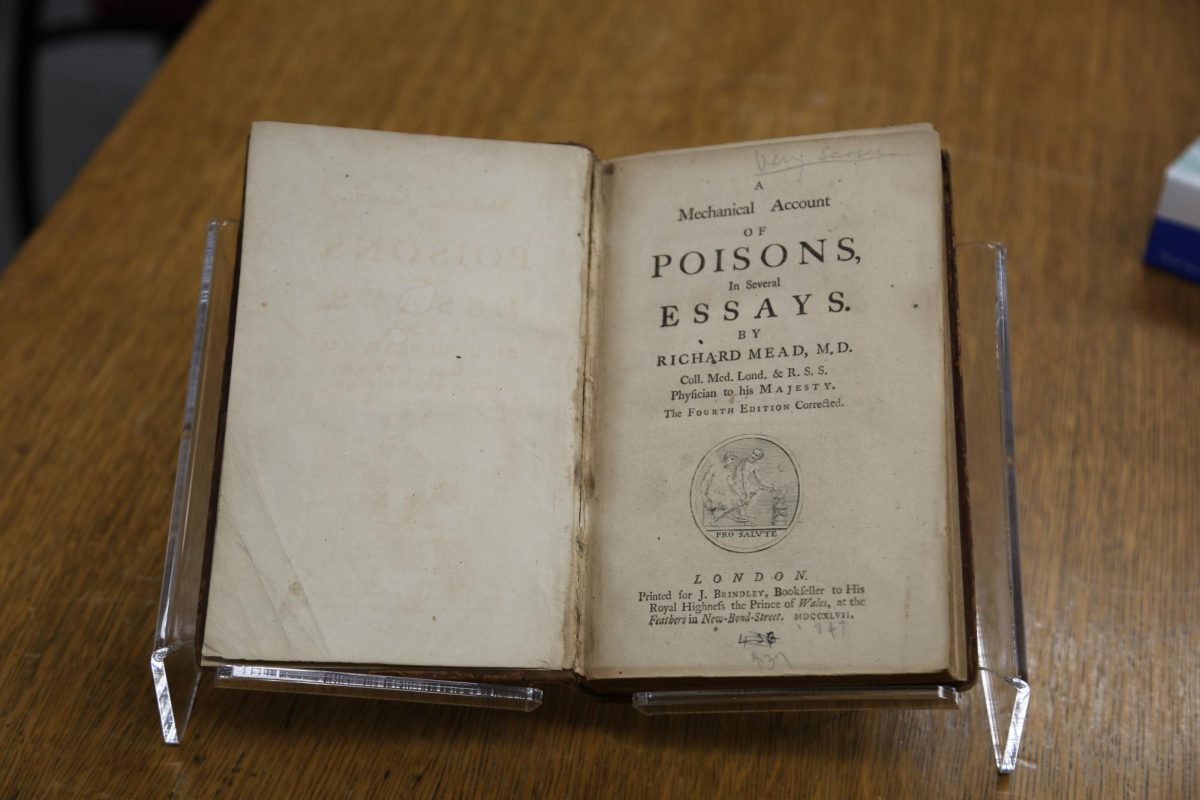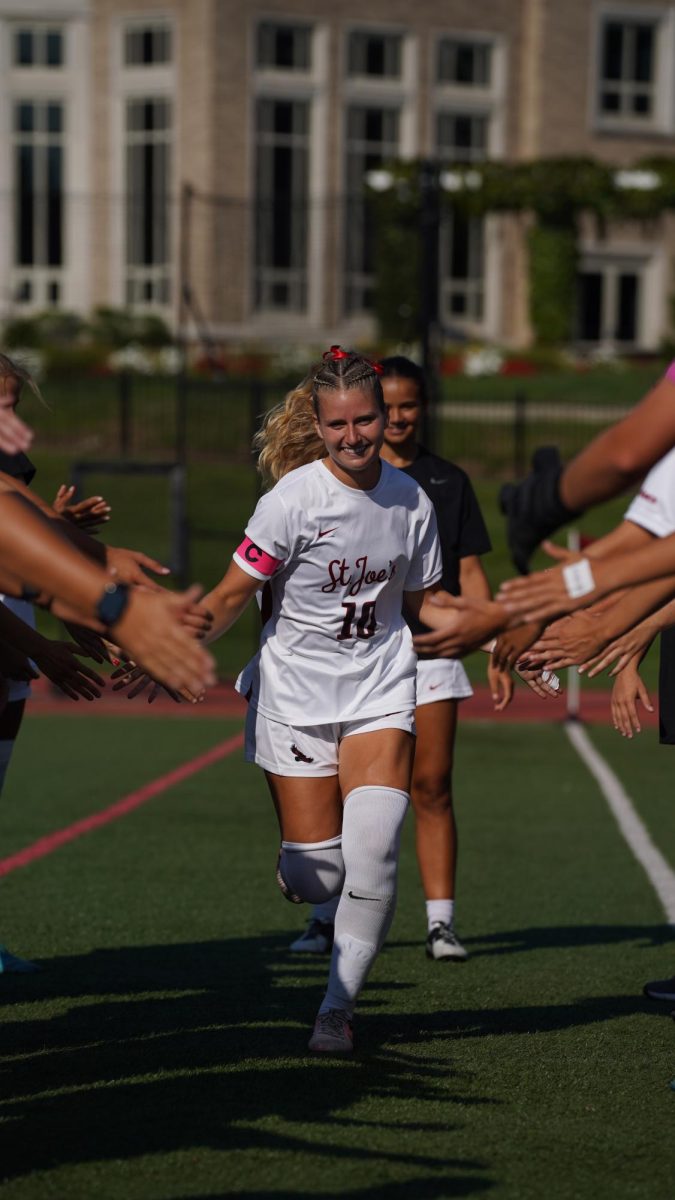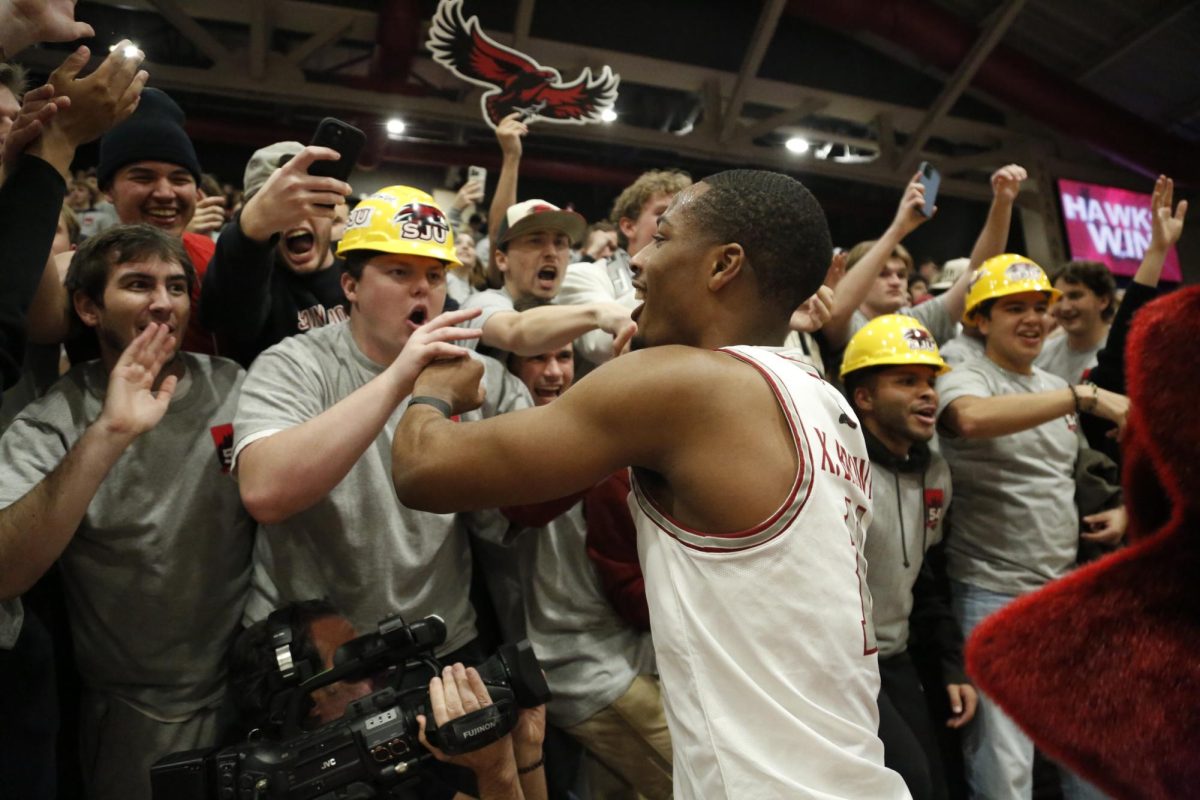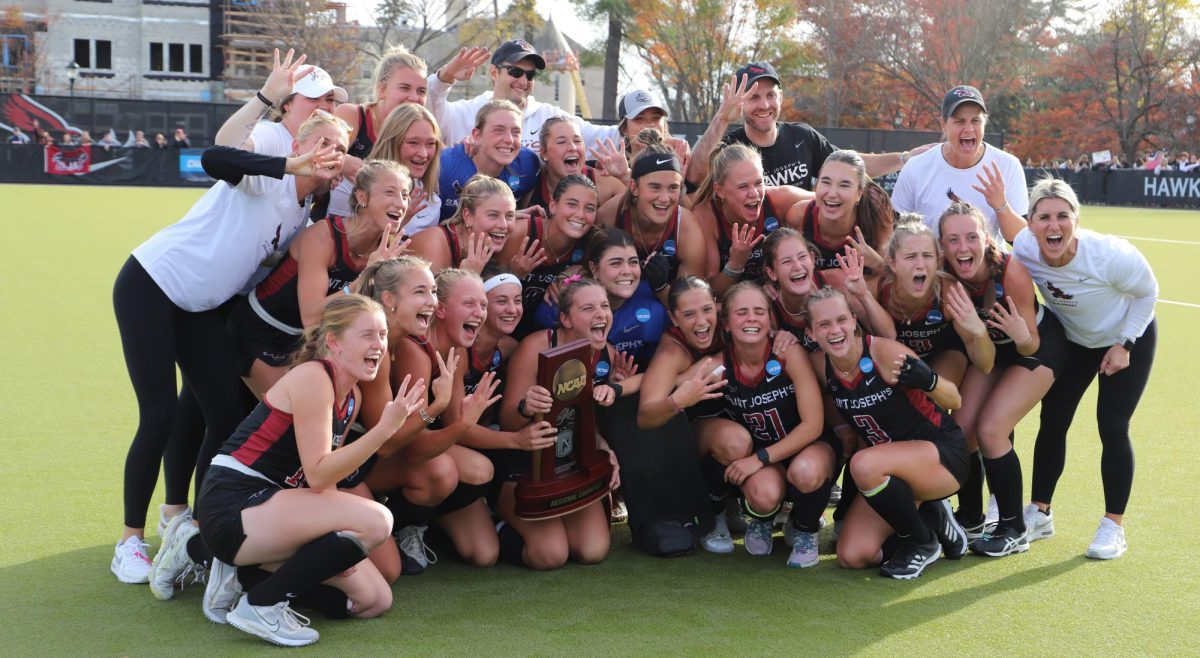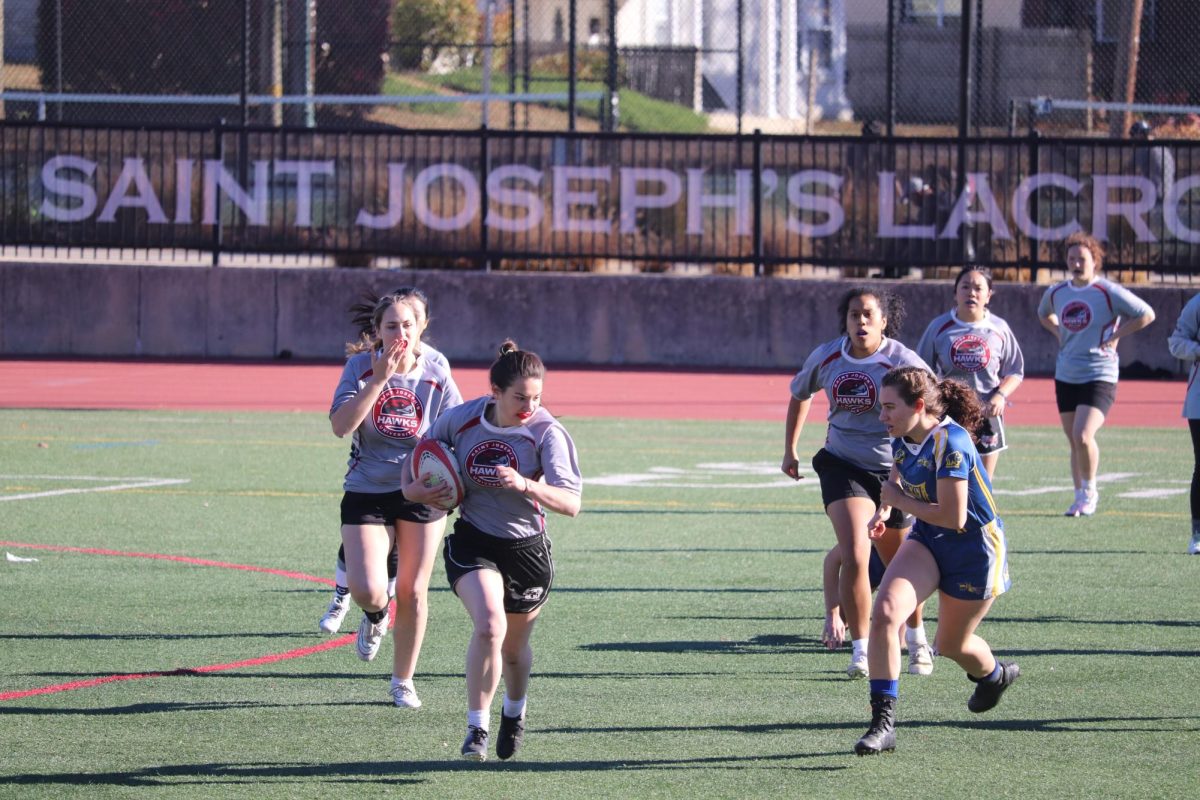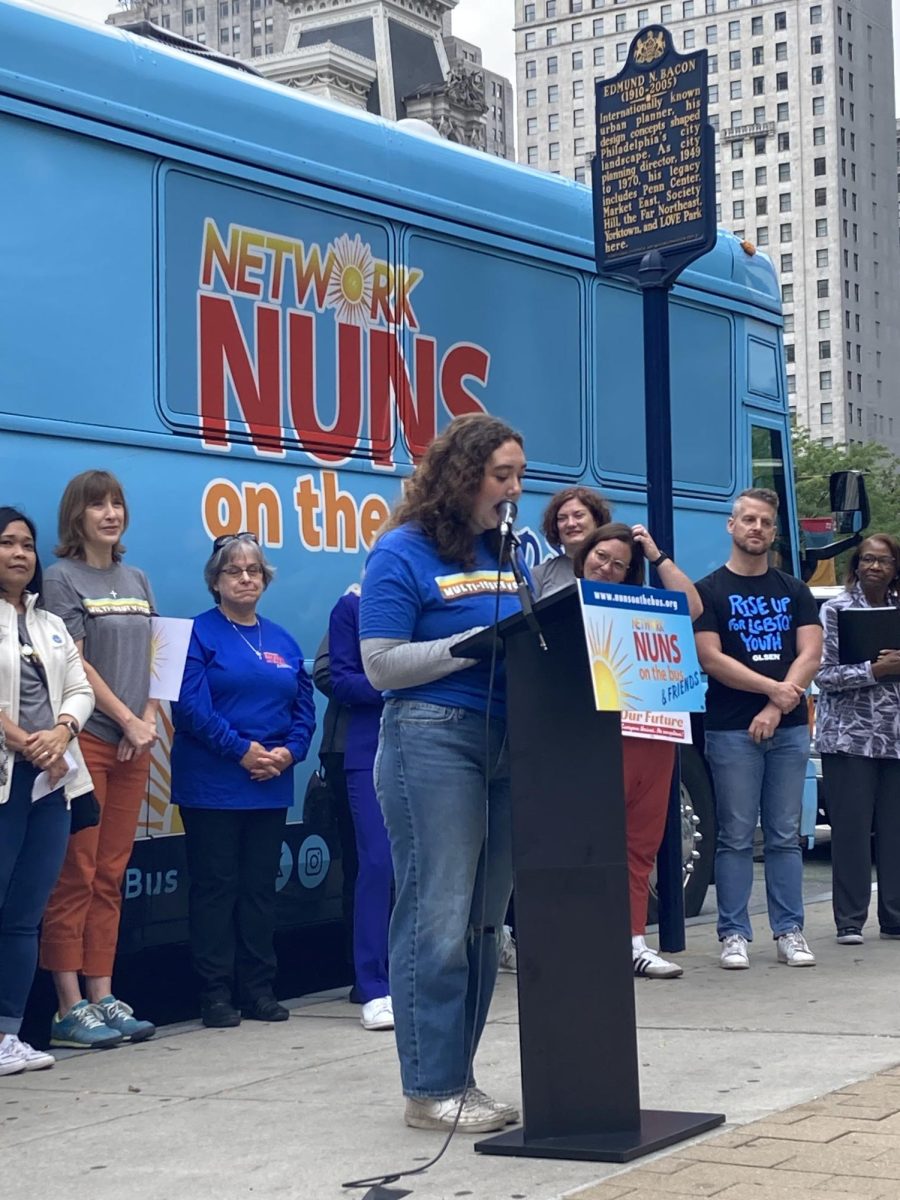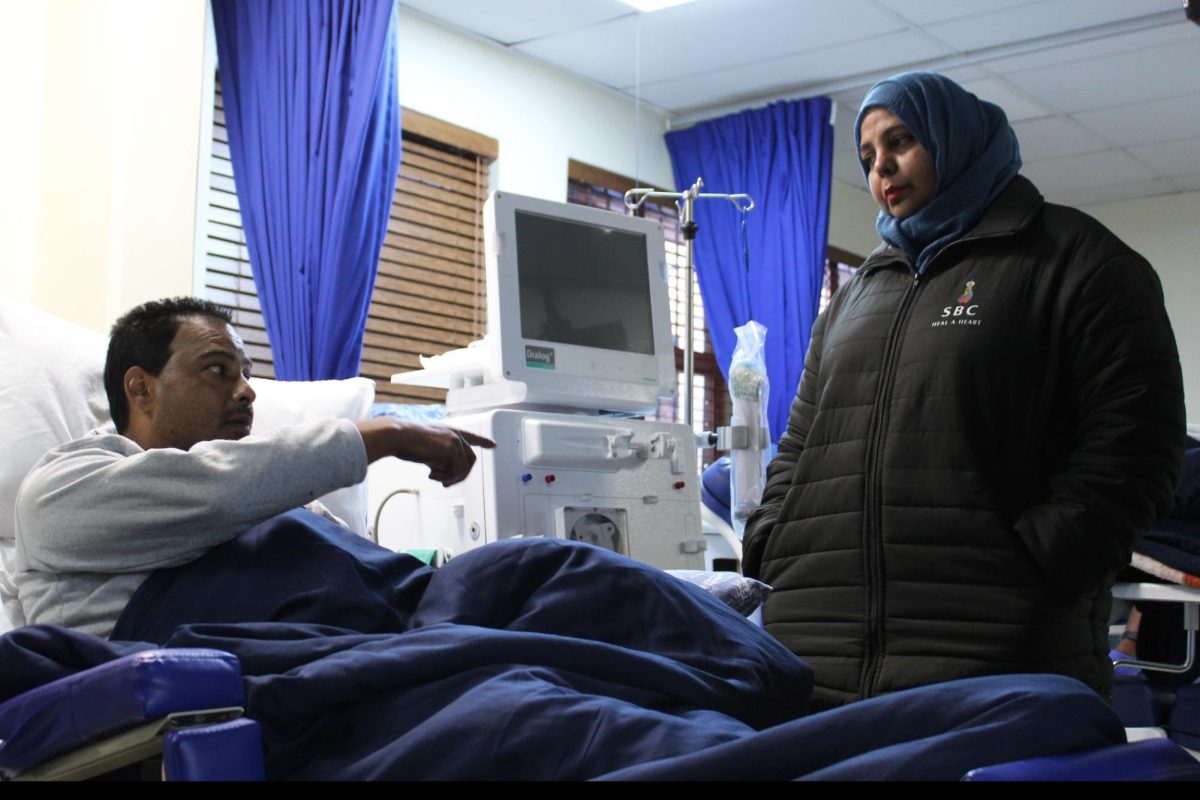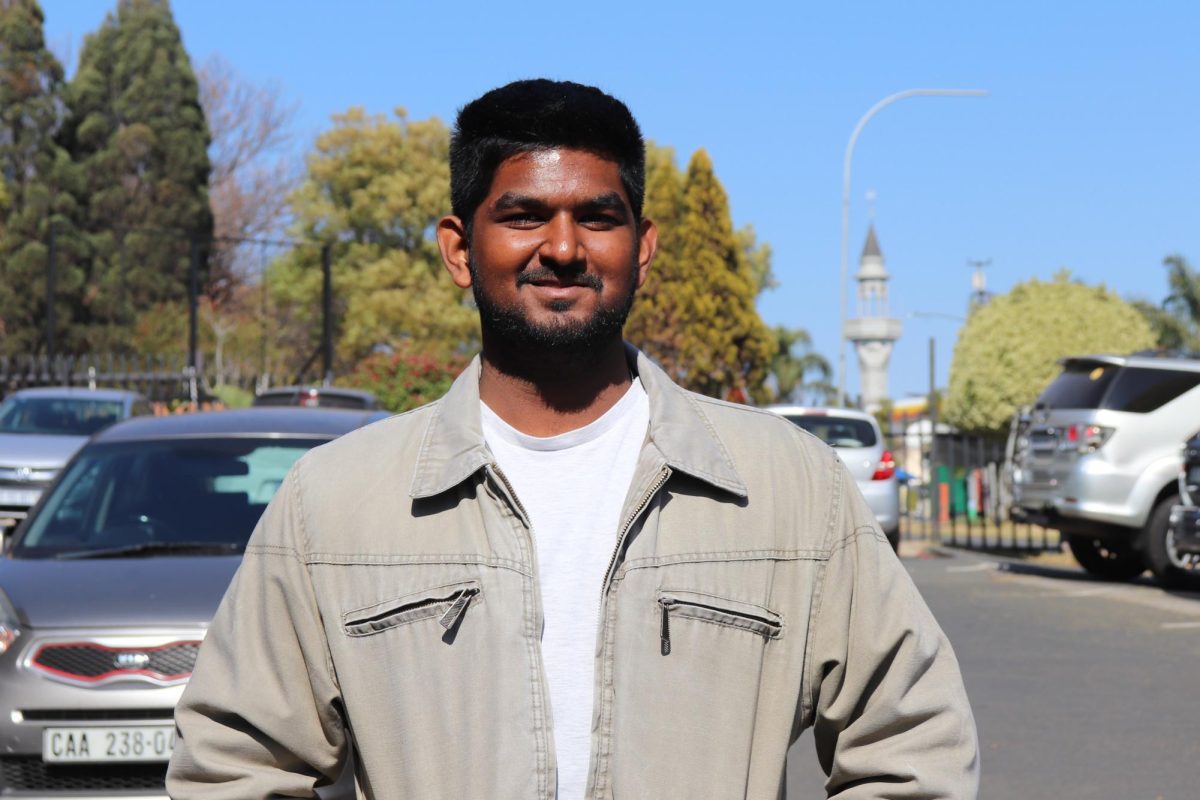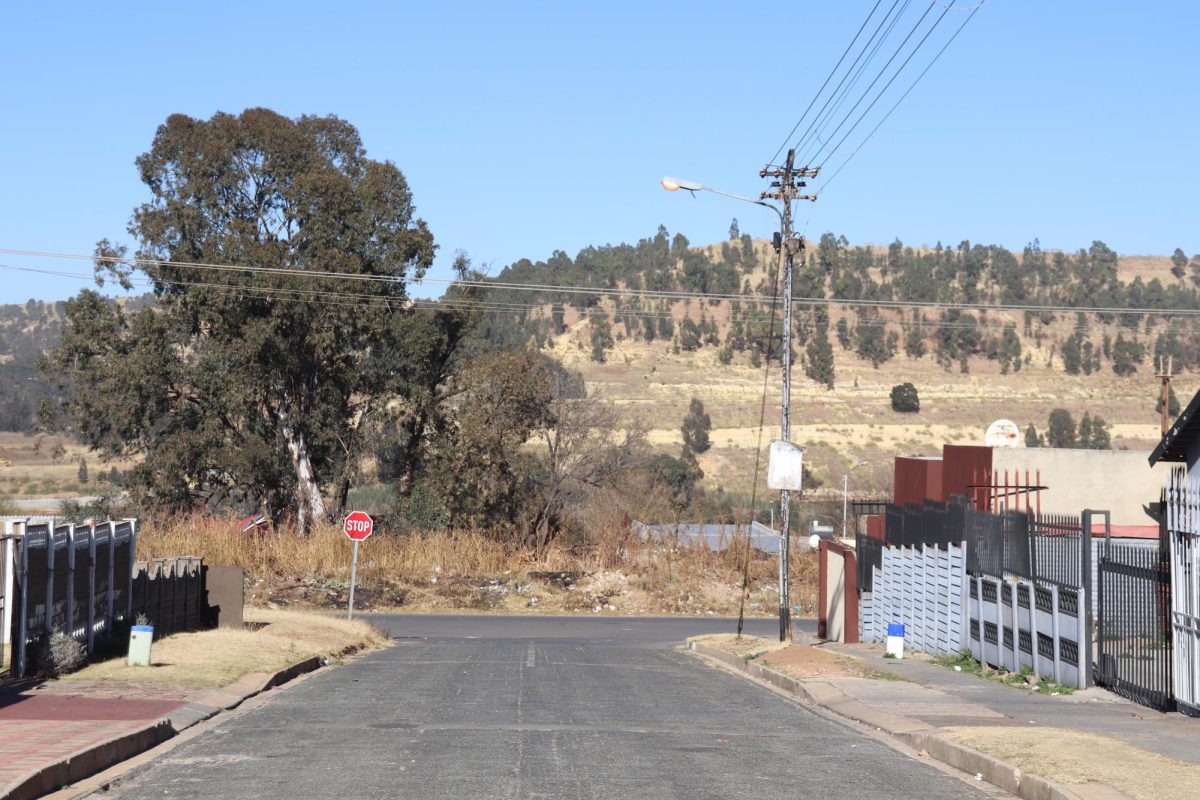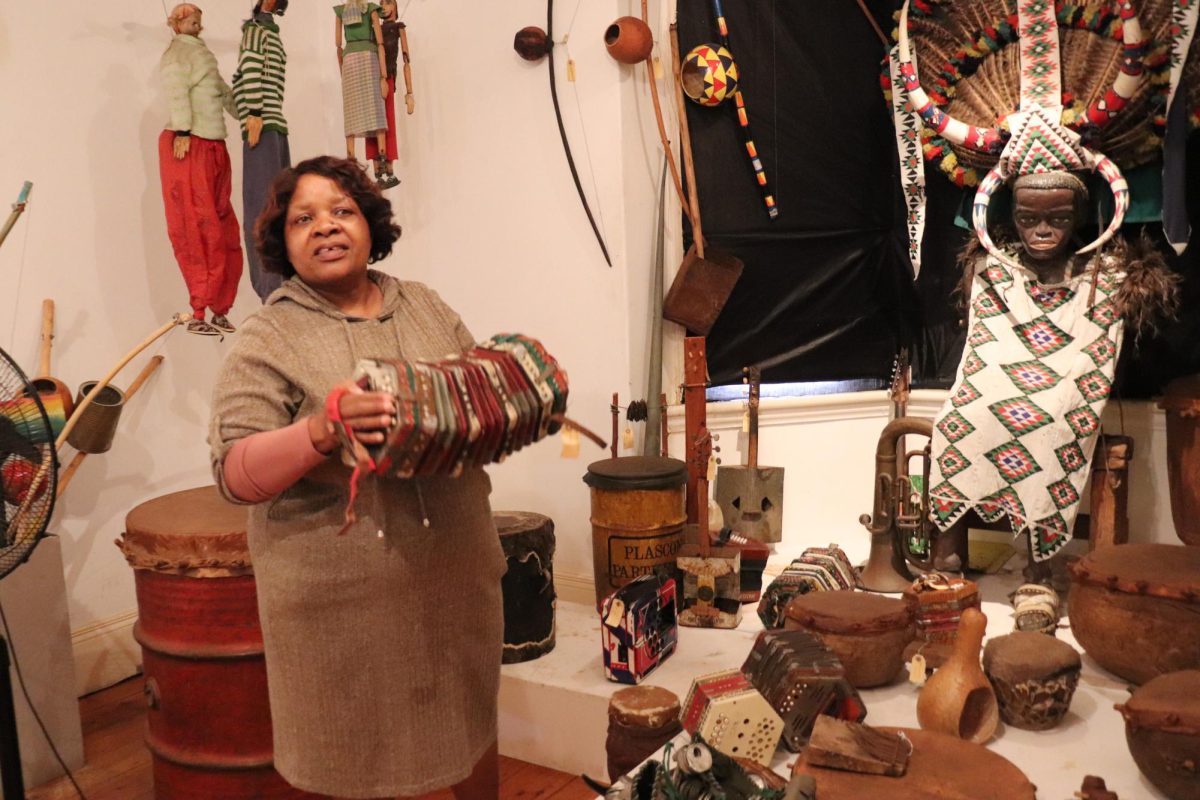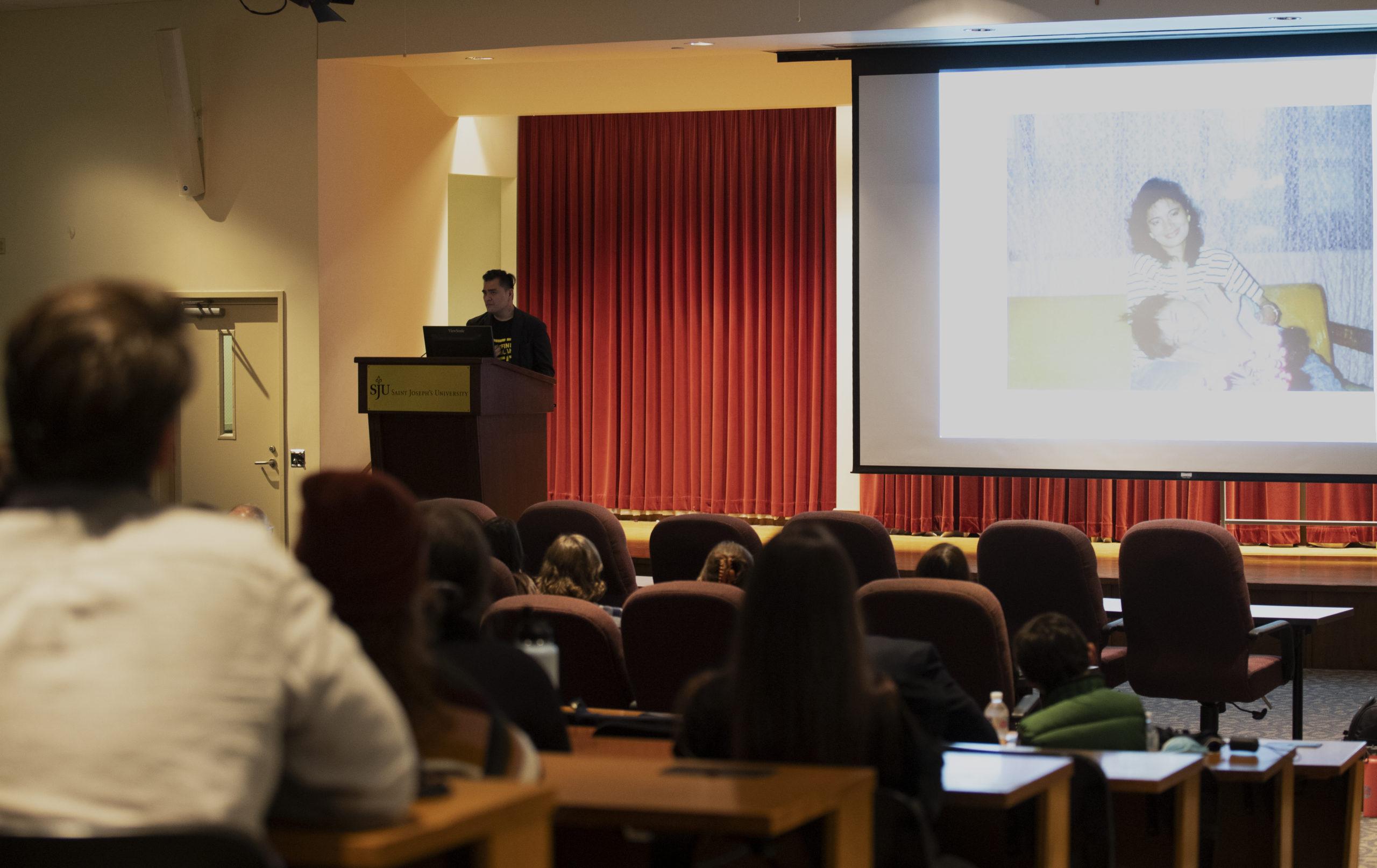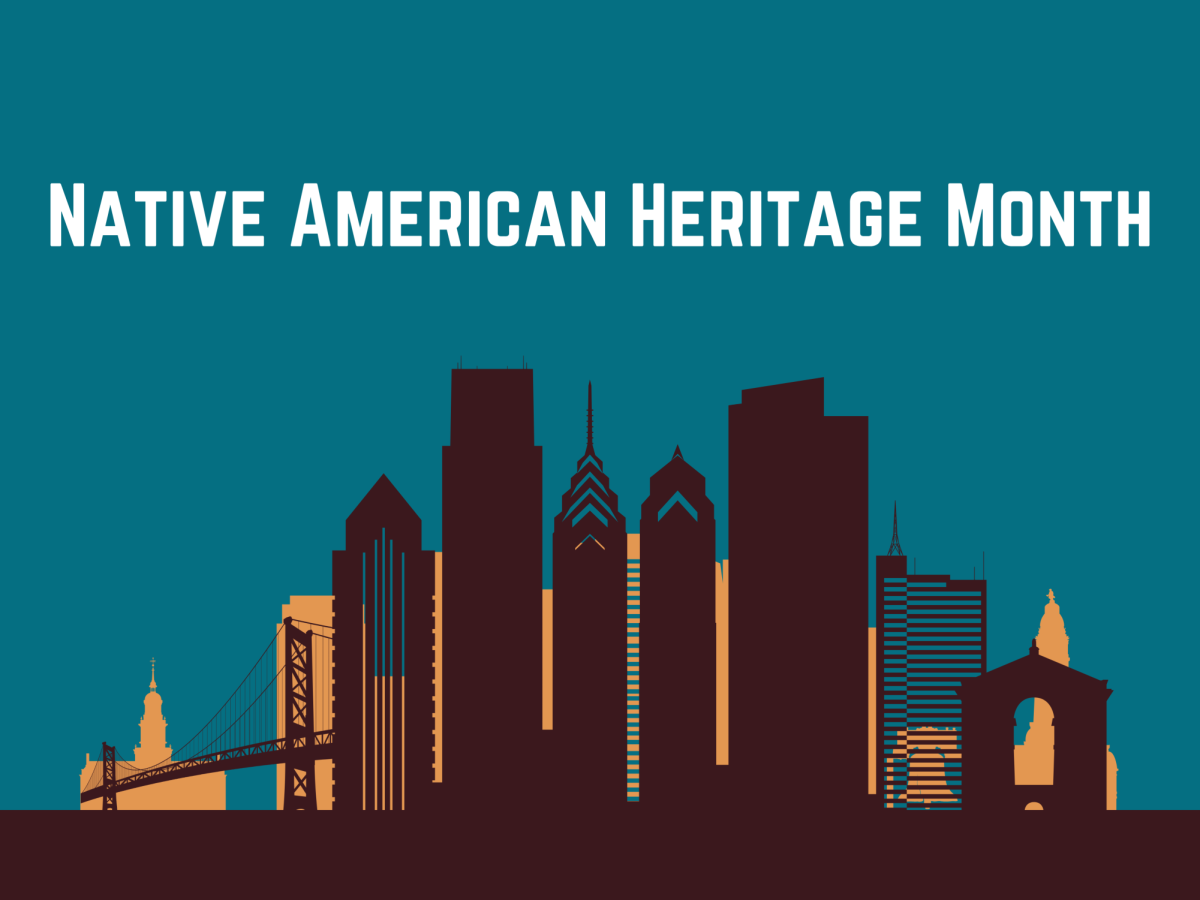On a campus ministry trip to Puebla, Mexico in 2020, Emma McCusker ’22 witnessed first-hand what politicians were dubbing the U.S.-Mexico “border crisis.”
“There was a freight train that goes through Mexico,” McCusker remembered. “It’s not anything that you’d buy a ticket for. And migrants will jump on and off and it takes them right to the border. It’s very dangerous.”
Each year, hundreds of thousands of migrants from Central America and Mexico ride these cargo trains, known as “la bestia” (“the beast”) or “el tren de la muerte” (“the death train”) to the U.S.-Mexico border. They face high rates of violence, rape, kidnapping and death on the train, which they often board because they don’t have money to pay smugglers to get them to the border.
McCusker said that experience in campus ministry’s Winter Immersion Program (WIP) changed her.
“Through that experience, we gained a lot of knowledge on immigration, especially from Mexico to the U.S. border,” McCusker said. “And that changed our whole perspective on what we want to do for the rest of our college years.”
Two years later, inspired by that trip but delayed by the pandemic, McCusker and Leslie Lopez ’22, who was also on the trip, founded Hawks for Immigration, Advocacy and Reform, in the fall 2021 semester. The organization is student-led, and the goal is to bring awareness of issues involving immigration to St. Joe’s as well as to offer a safe space on campus to those who are affected by these issues.
“Leslie and I realized that a lot more needs to be done at St. Joe’s, and we need to have an organization that serves as a safe space for students who may be undocumented or have some sort of connection to immigration,” McCusker said.
The organization ran St. Joe’s first UndocuWeek from March 28 to April 1, a week for students to learn about and engage with the realities of immigrants and students living in the U.S. without legal permission. UndocuWeek included documentary watch parties, community discussions and a talk by Pulitzer Prize-winning journalist Jose Antonio Vargas.
“Our goal was to run a week that brought awareness to issues and things that undocumented immigrants go through,” Lopez said. “We showed a short documentary about what life is like at the border and in detention centers. Afterwards, we had an in-depth conversation about issues involving immigration and what can be done to fix them.”
The group also wrote a letter and petition to U.S. Rep. Mary Gay Scanlon about addressing the problems immigrants living in the U.S. without legal permission face.
“People seem to support immigration reform and providing a pathway to citizenship for people who’ve been here a long time, which I think is the main issue with immigration reform right now,” Lopez said.
For children brought without immigration documents to the U.S. by their parents in hopes of starting a new life, policies like the Deferred Action for Childhood Arrivals (DACA) program protect the children, known as DREAMers, from deportation. But DREAMers and other immigrants living in the U.S. without legal permission are unable to obtain a social security number, which means if they go to college, they cannot receive federal aid.
“For a student that’s an immigrant, it can be very challenging to know what resources are available to you or to know who you can trust,” said Lesley Reyes ’22, a member of Hawks for Immigration. “If you are undocumented, that can be very isolating as you live in this constant fear.”
The Hawk could not obtain by press time the number of currently registered St. Joe’s students whose citizenship status is “undocumented.”
Reyes, who plans on becoming an immigration lawyer, said she feels the pain of an undocumented college student she knows who does not attend St. Joe’s.
“I can see the pain, where you’re just trying hard to be a person,” Reyes said. “He’s been here since he was six, so it feels like home to him. It feels like he belongs here like he is a citizen yet because he was born in another country, he isn’t. This is his home. The only home that he knows is America.”
Reyes said she also personally understands the challenges immigrants face. Her parents are immigrants from Mexico.
“Just being the first to go to college for my family, that has been a very big impact in my life and is the reason why I want to give back to my community,” Reyes said.
Reyes said she weighs her own ability to fulfill her dreams with those of her friends who are not living in the U.S. legally.
“They tell me they want to become doctors, they want to become lawyers, they want to become these professionals,” Reyes said. “But it was already hard to get through a four-year institution, and it’s even harder to get above, to get their masters or become a doctor or lawyer as well. My passion for talking about these issues on campus, becoming myself an immigration lawyer, is because I’ve known firsthand these issues, what it feels like to be isolated, to be living in those shadows.”
With the organization’s founders both graduating this year, the group is looking for other students to continue with its mission.
“Immigration issues are ever-changing and it’s important for our campus to offer a safe haven for those affected by these always changing policies,” Lopez said. “Immigration work and advocacy is never ending, and we must continue to fight for what is right.”


